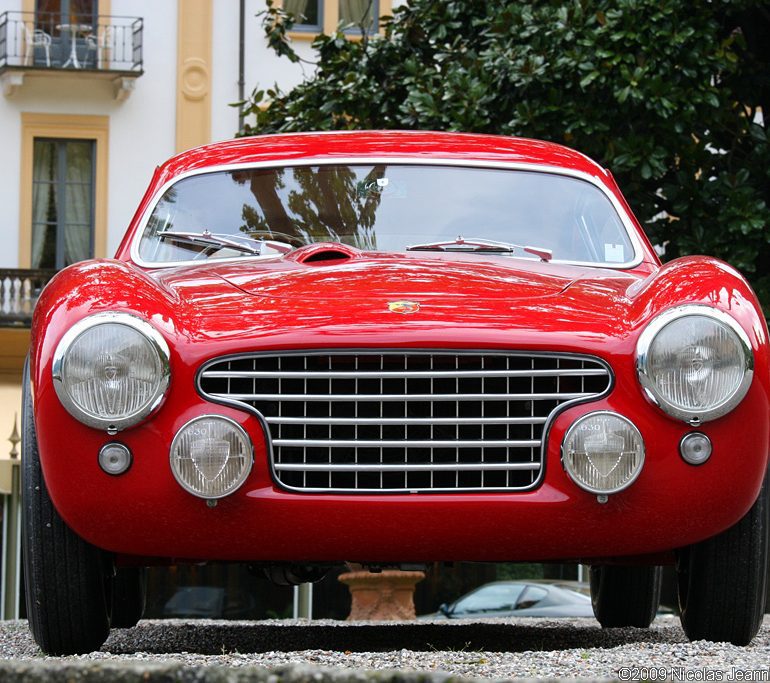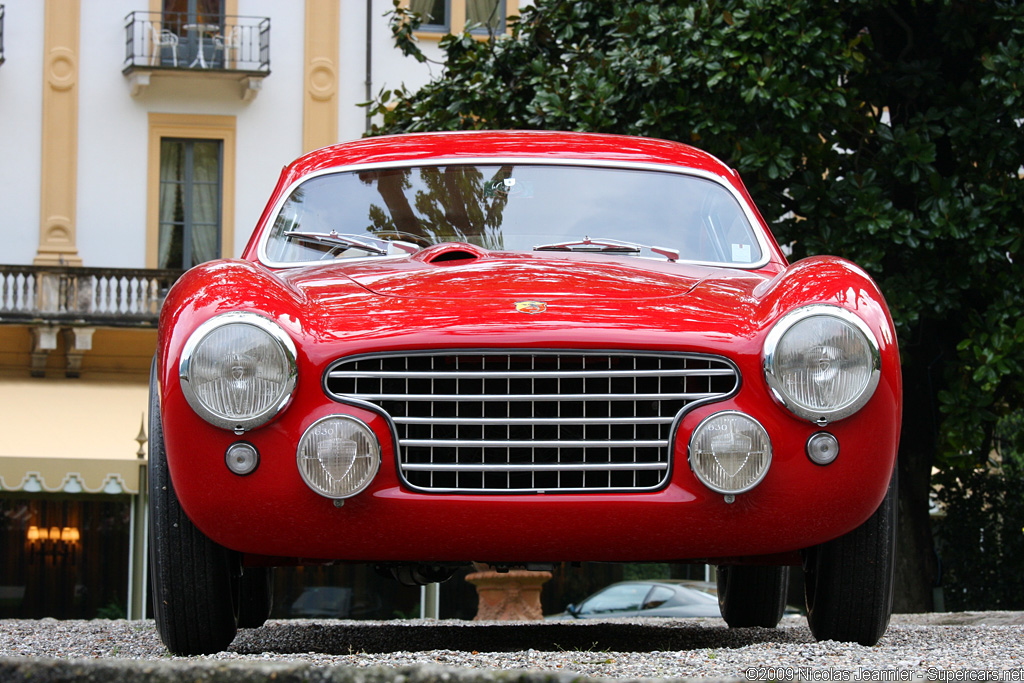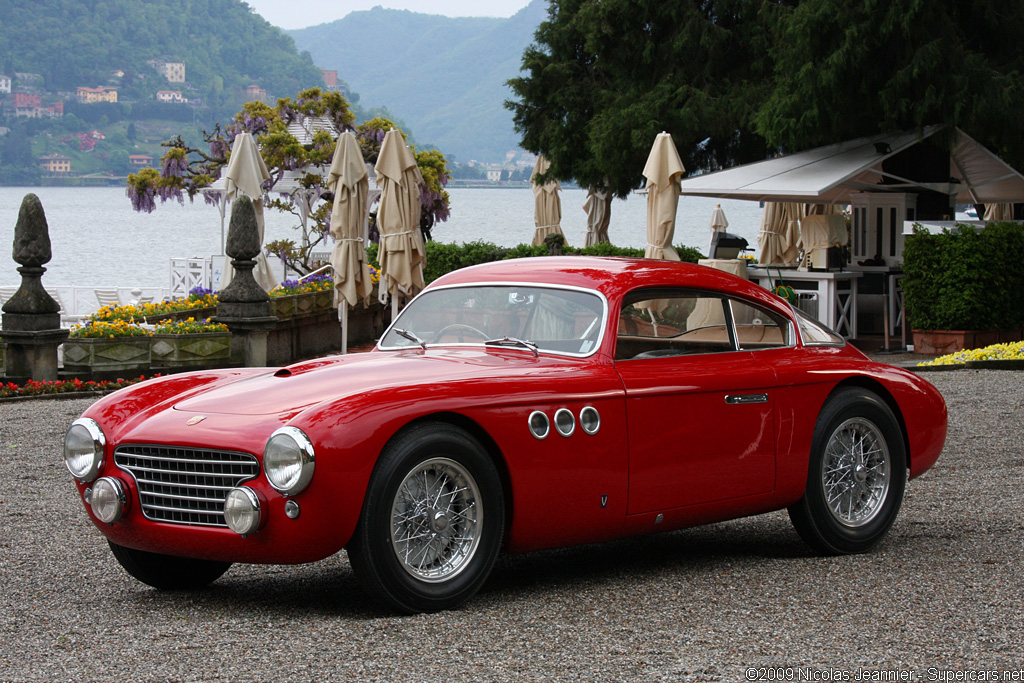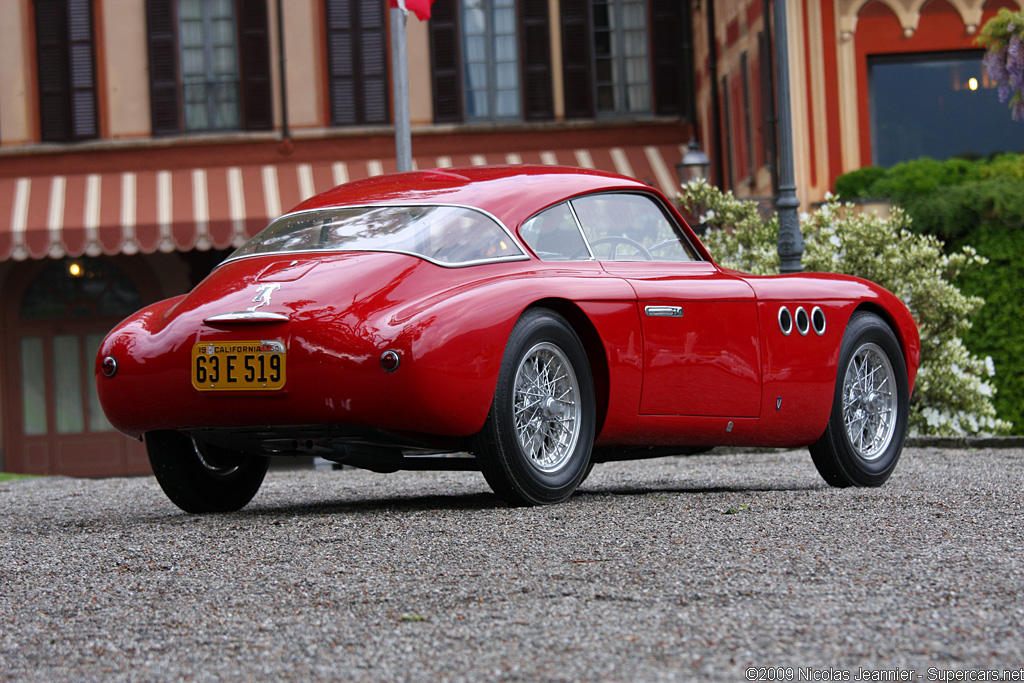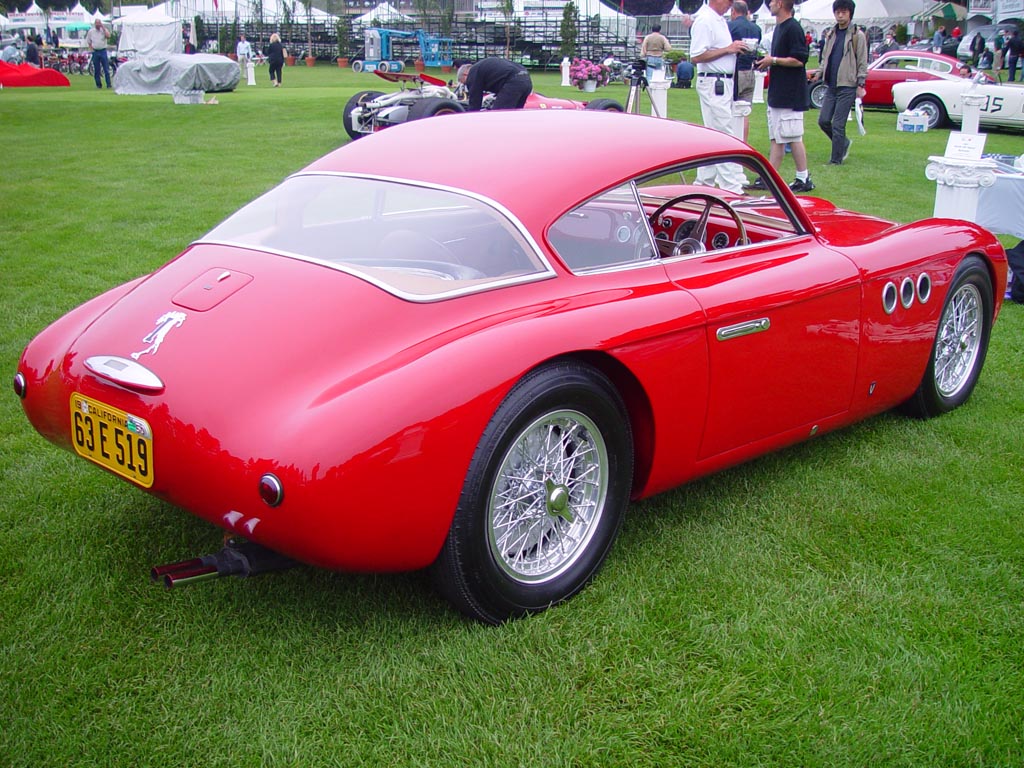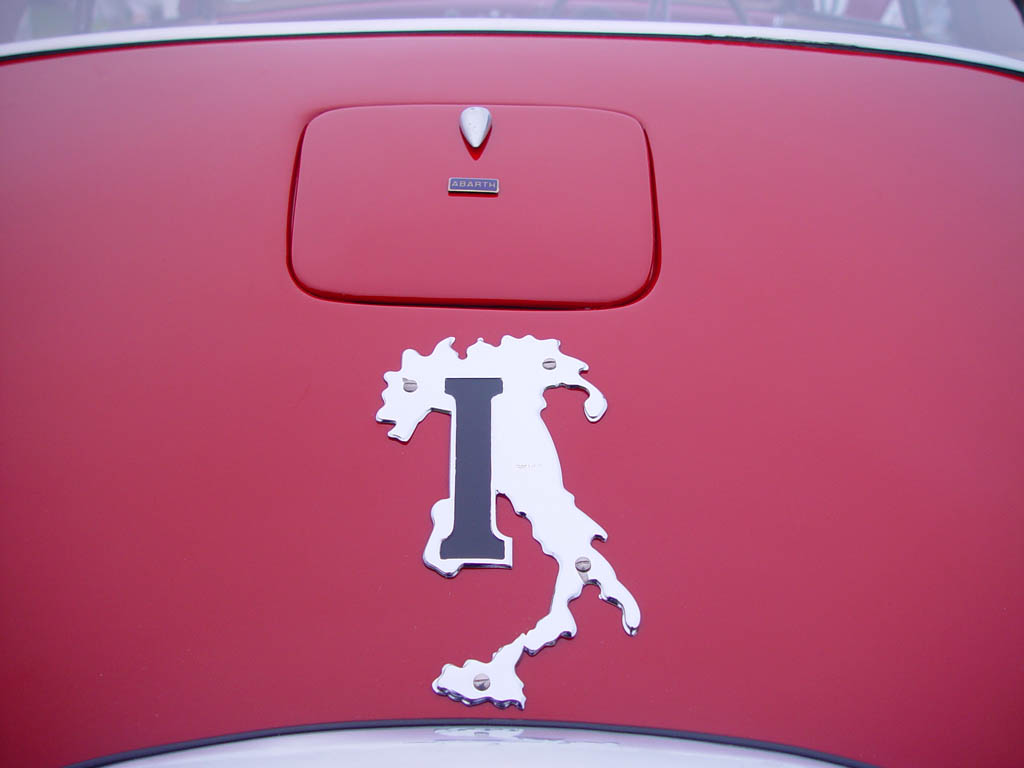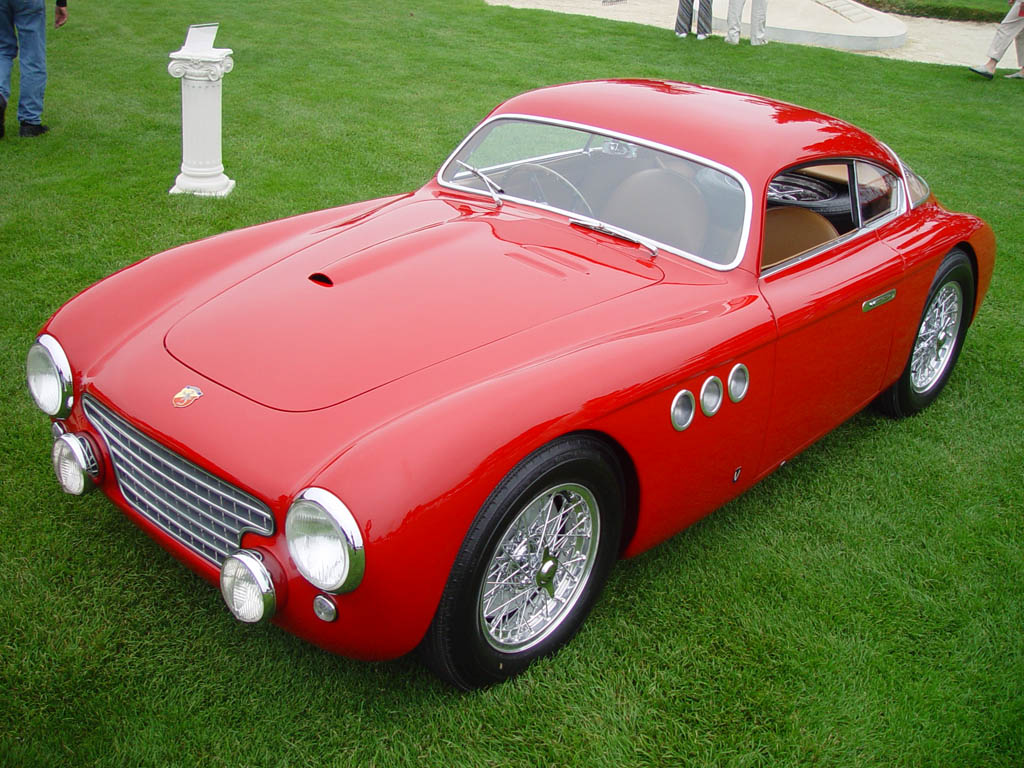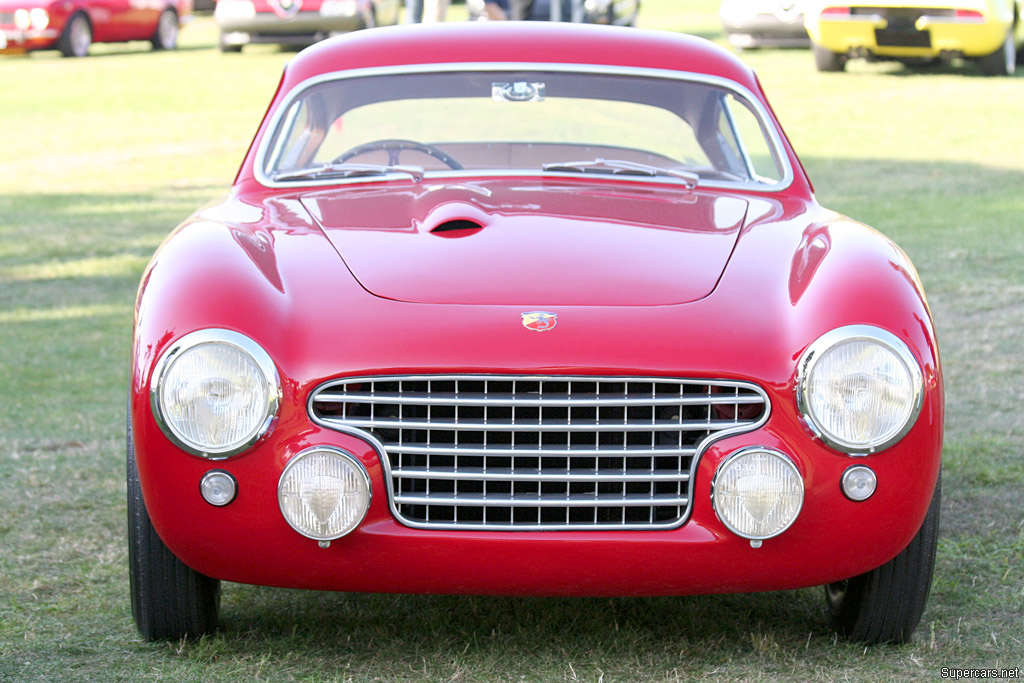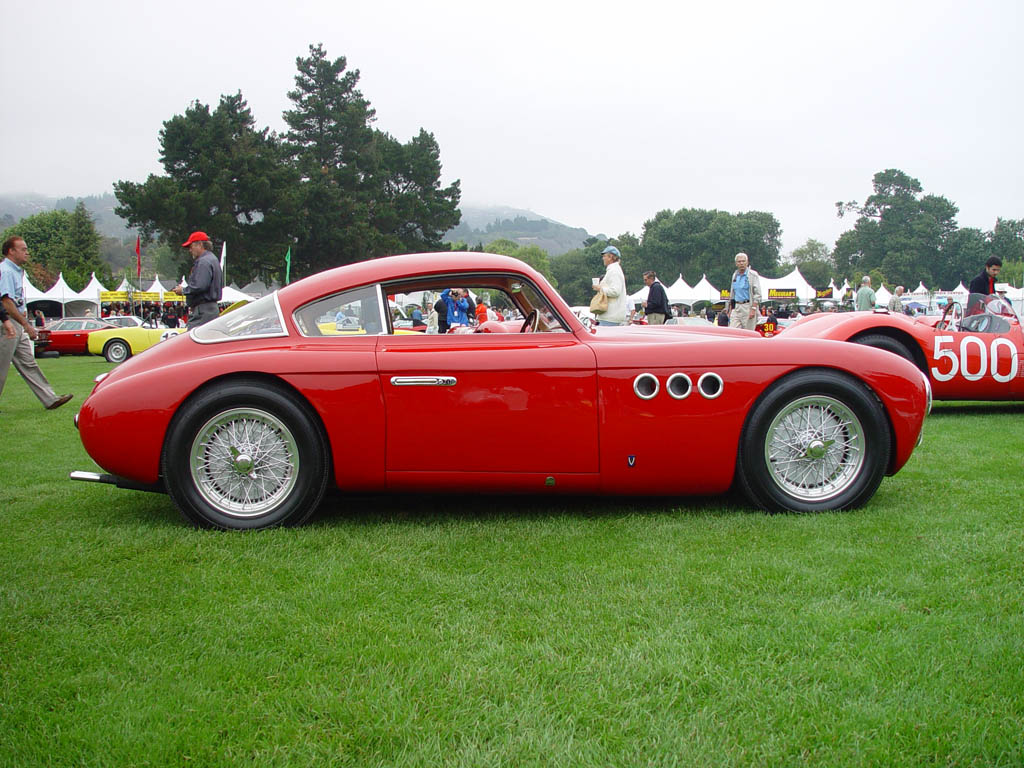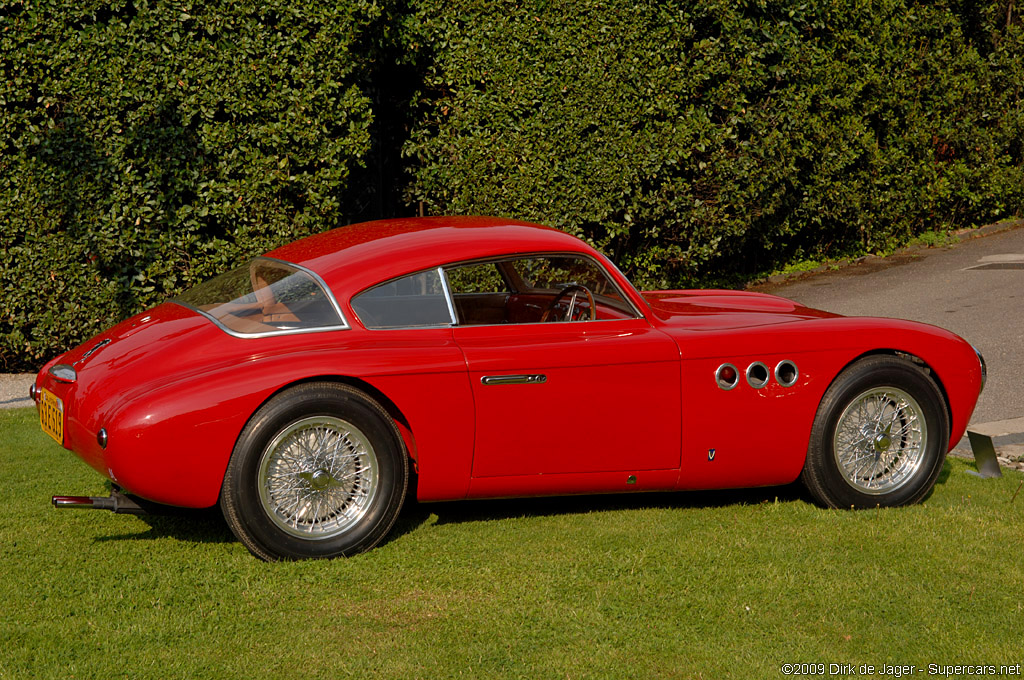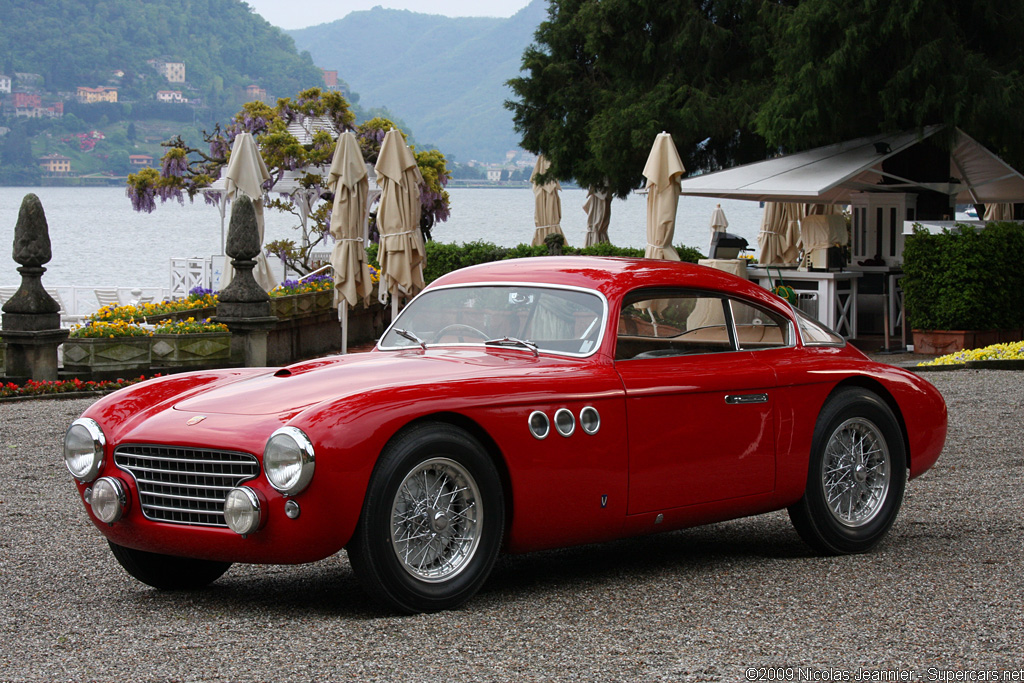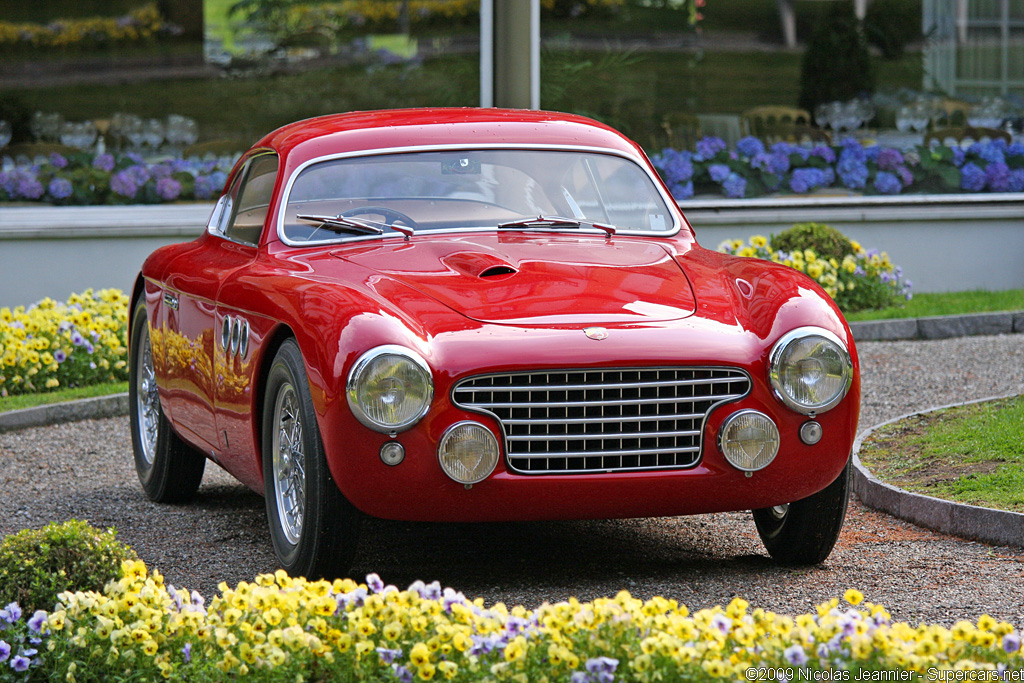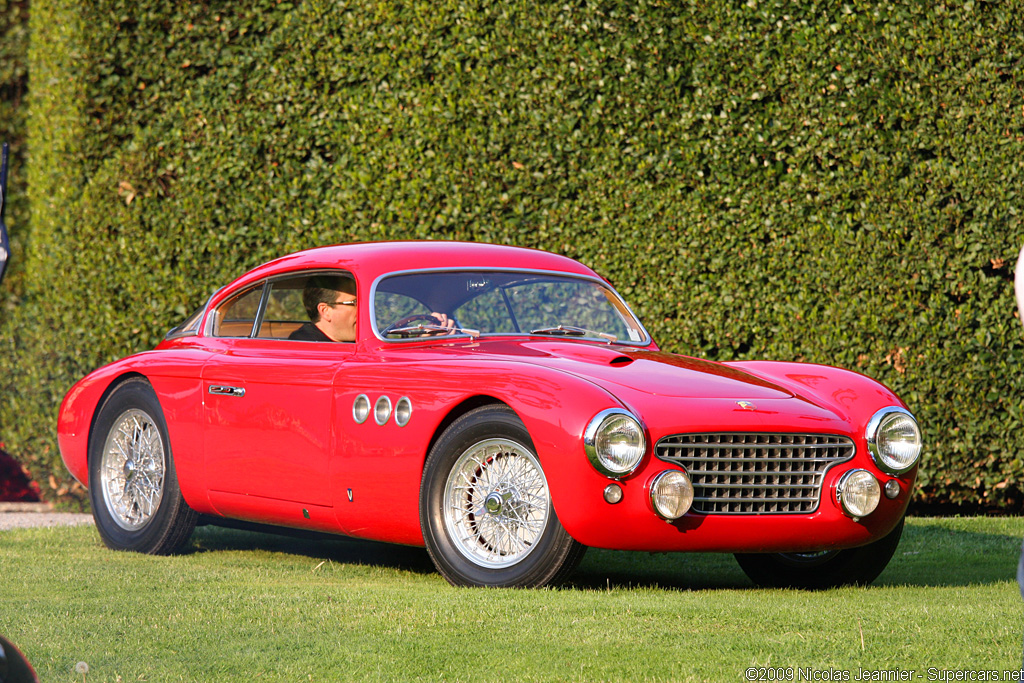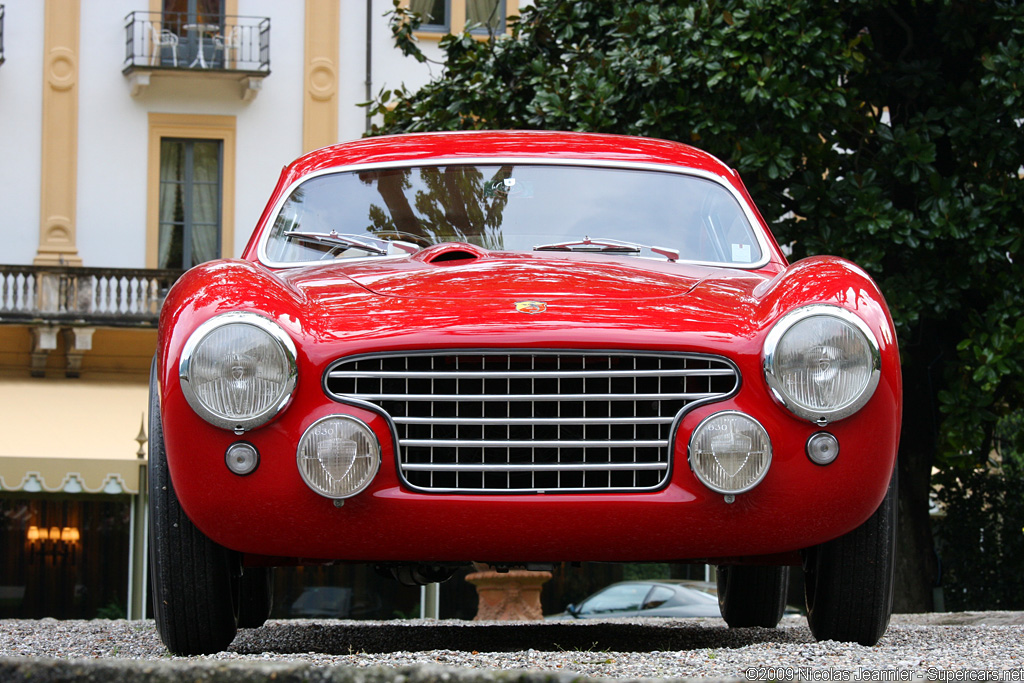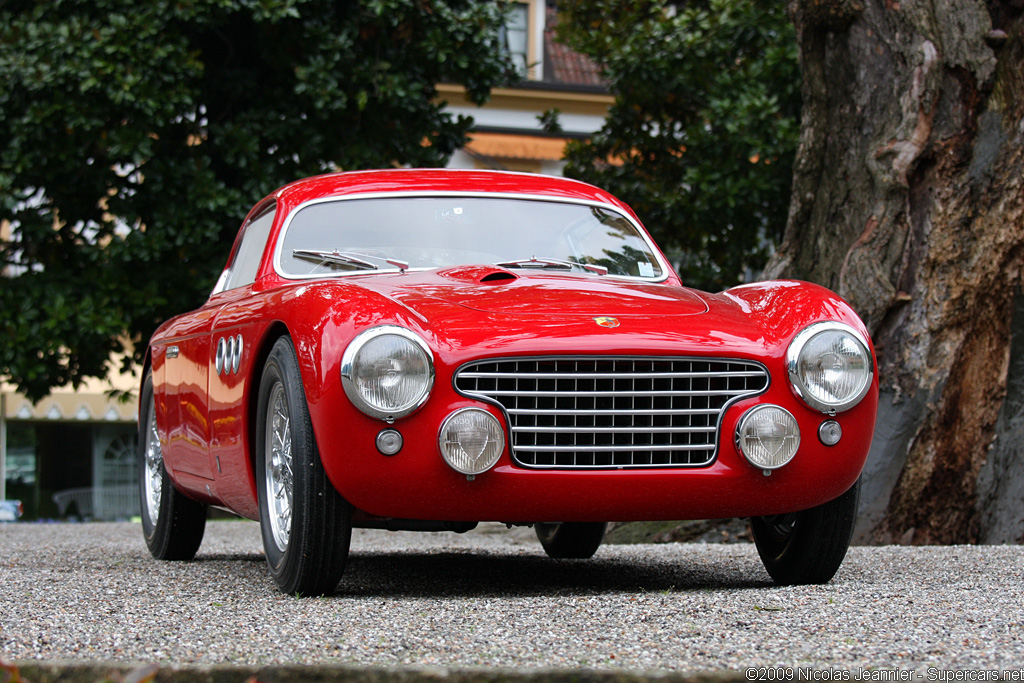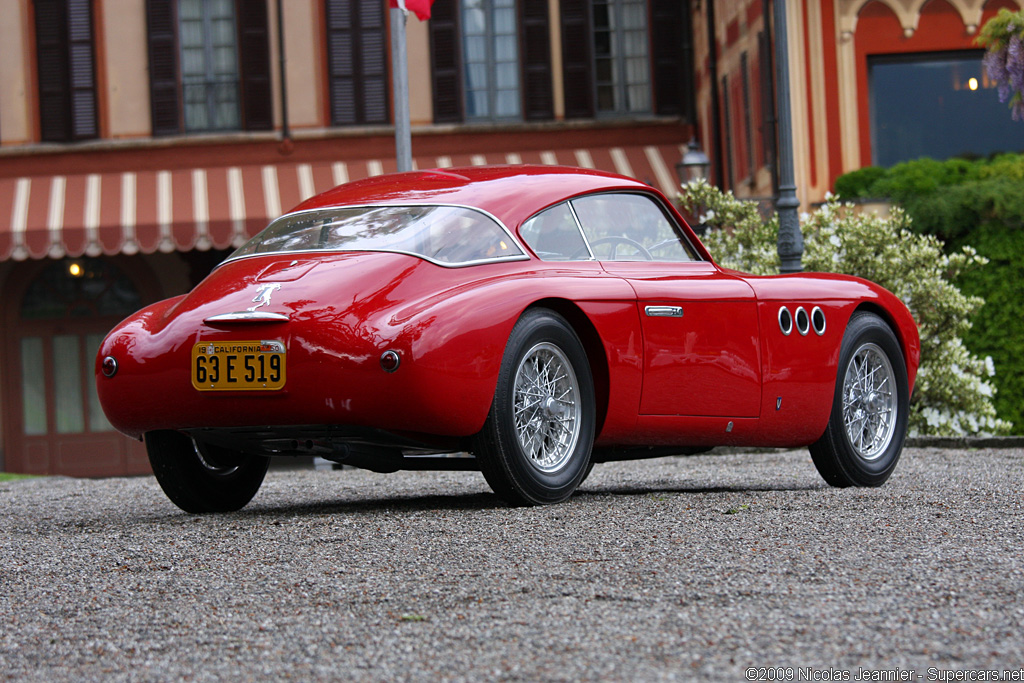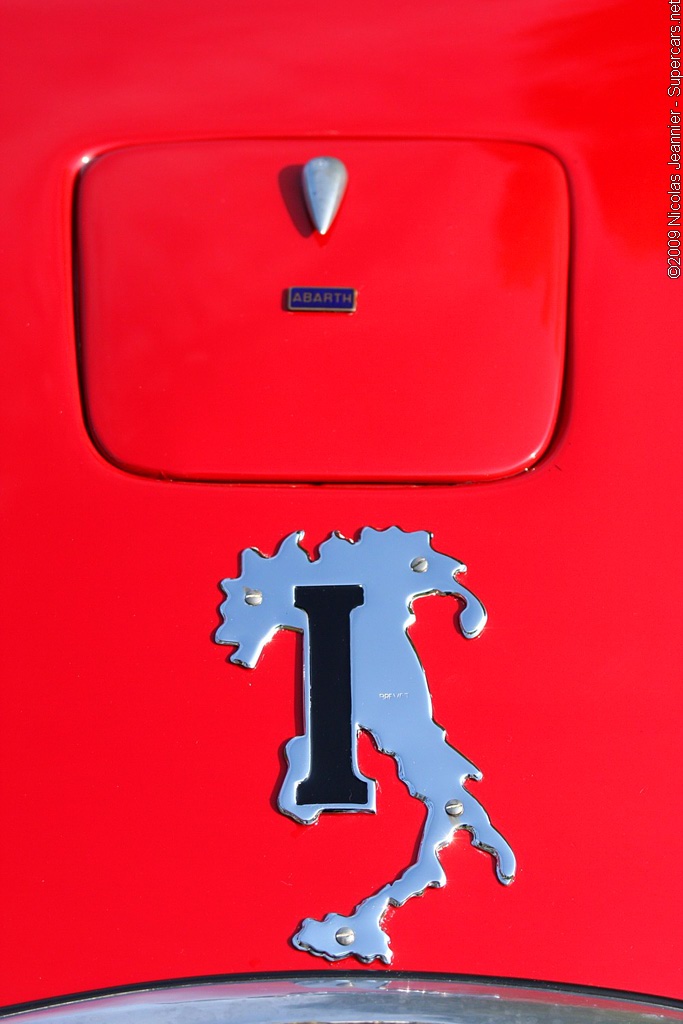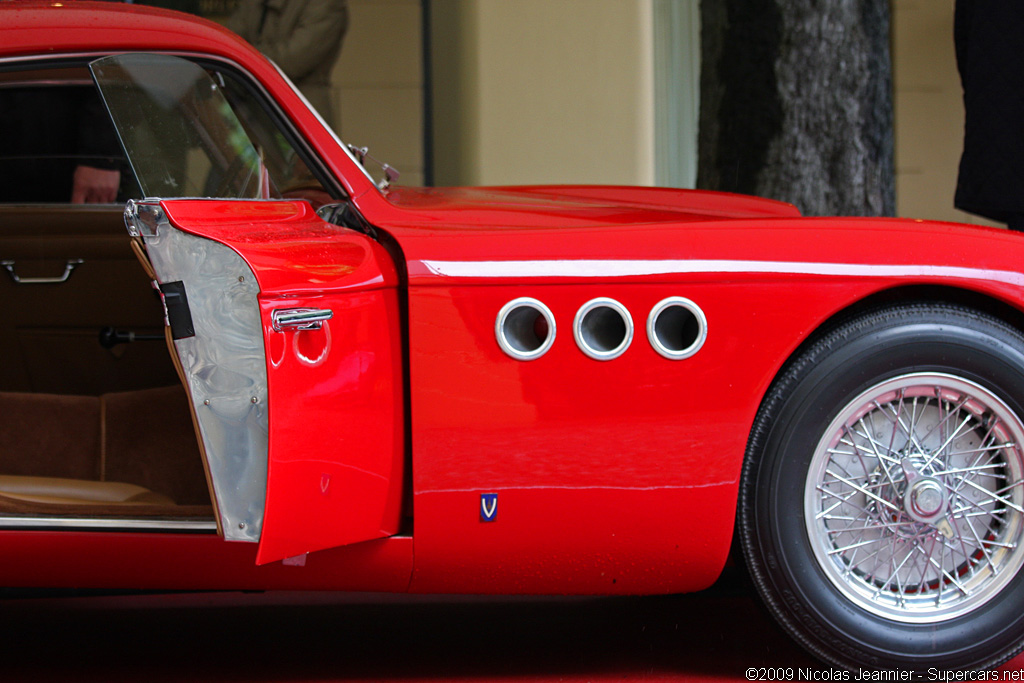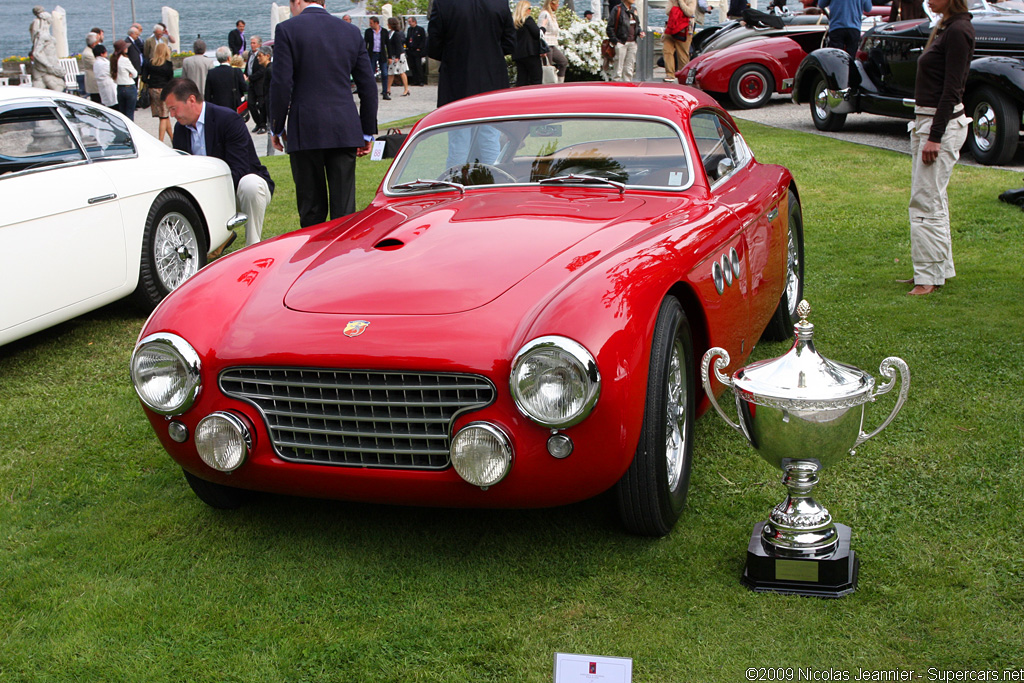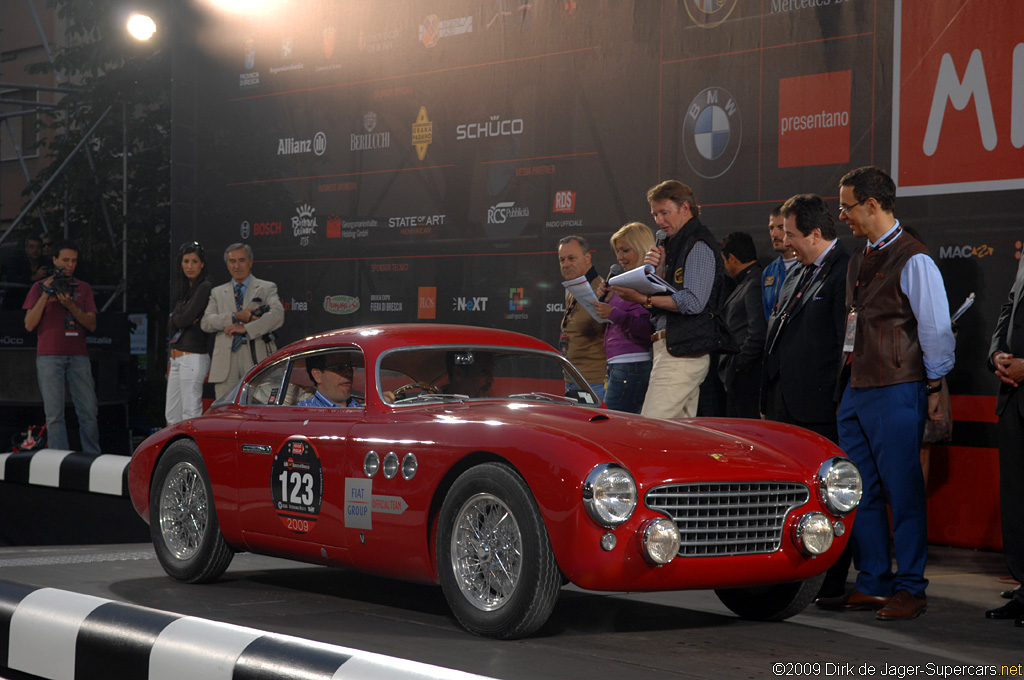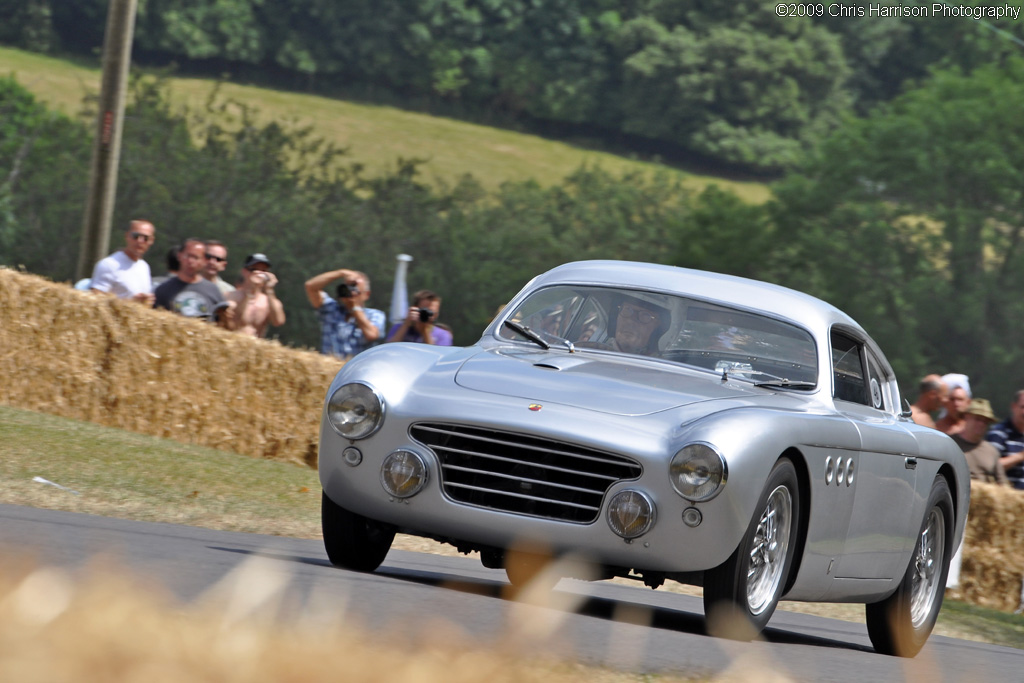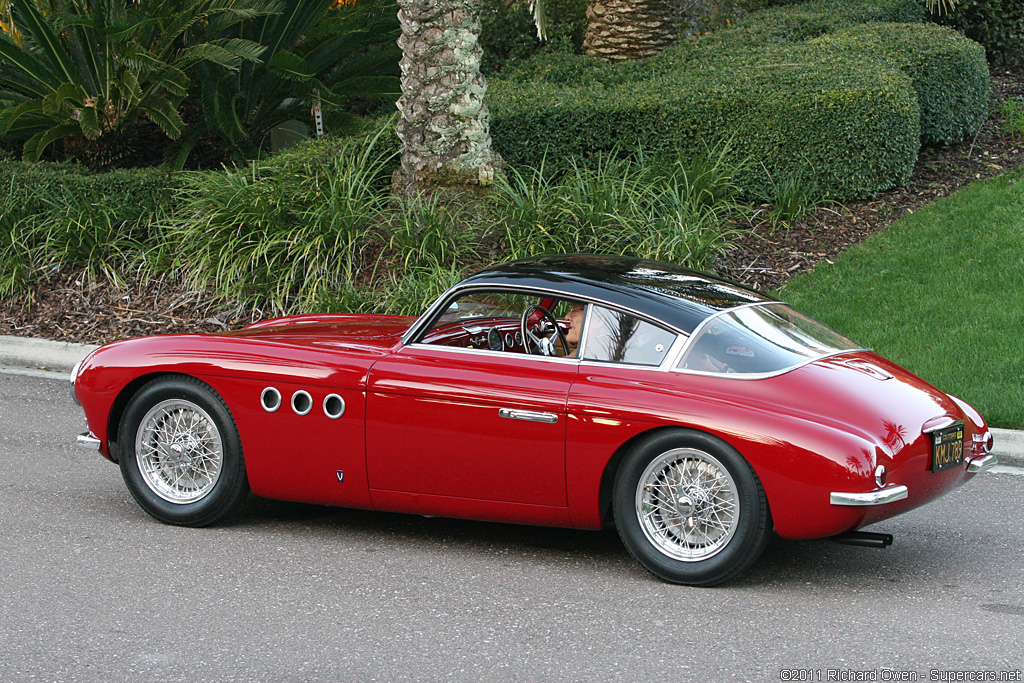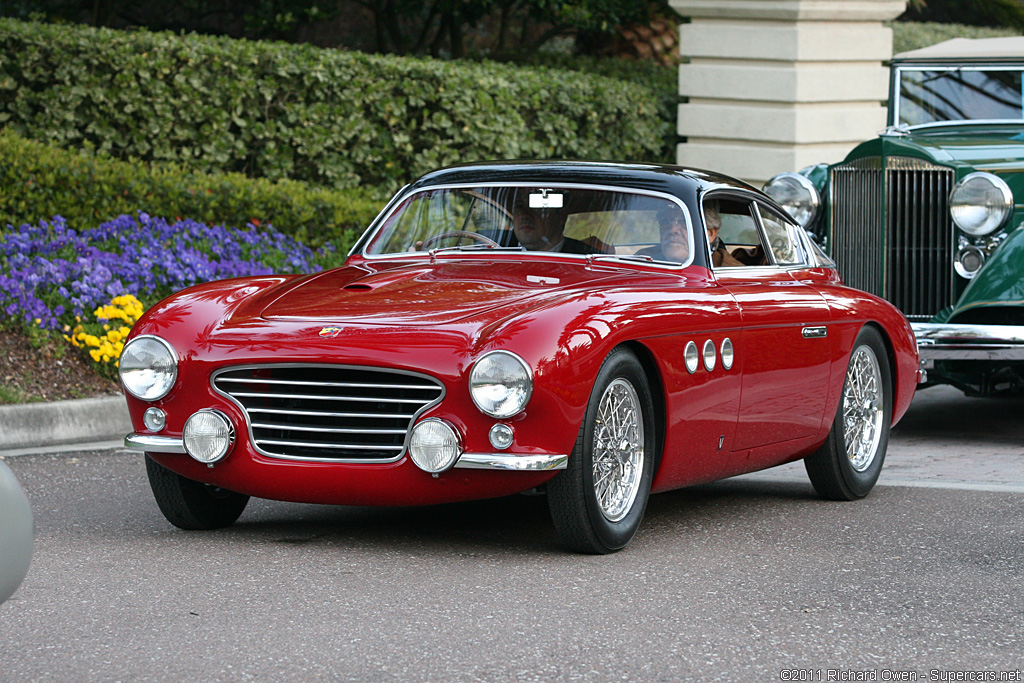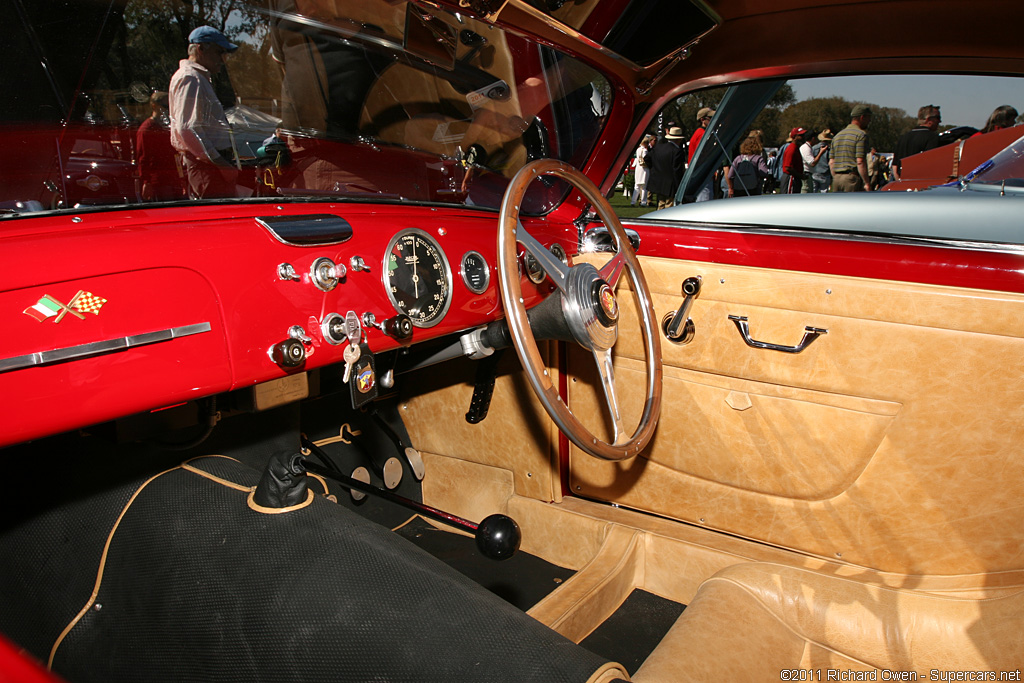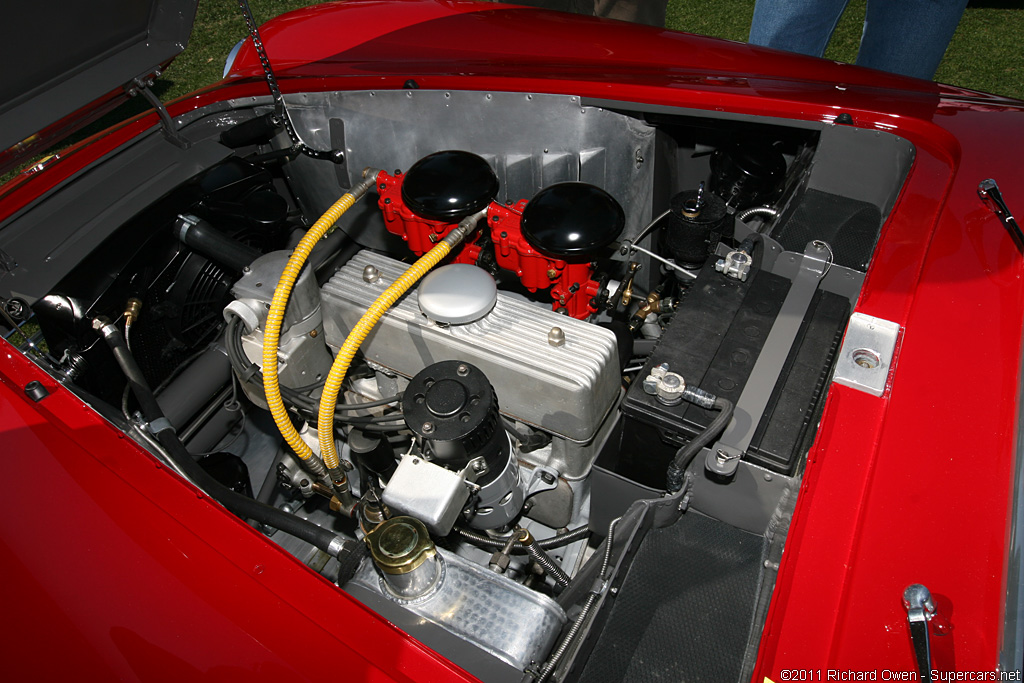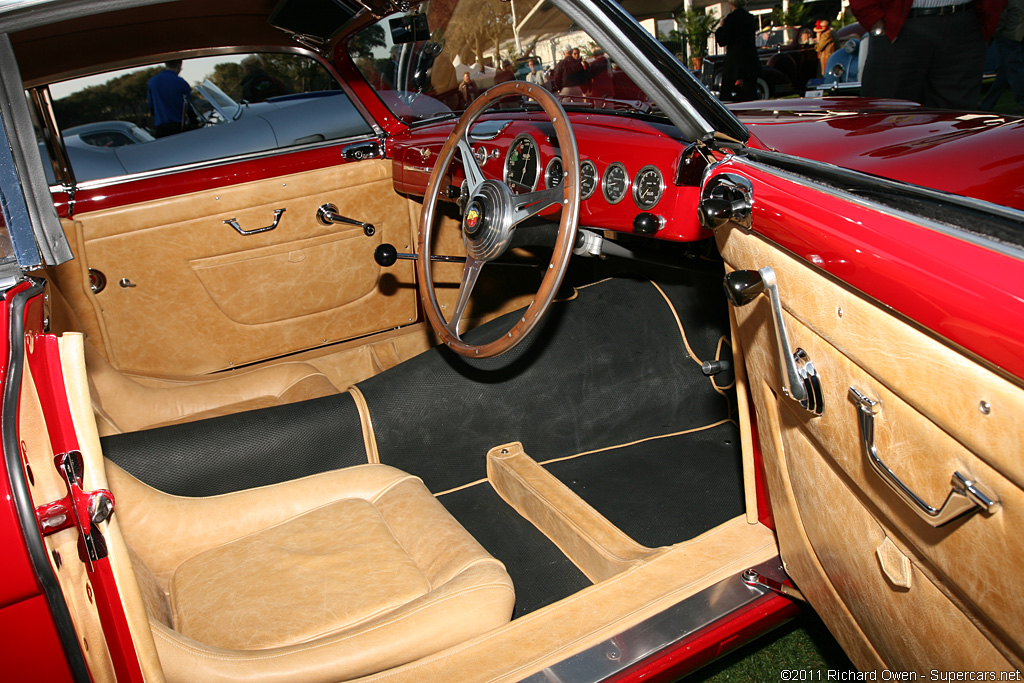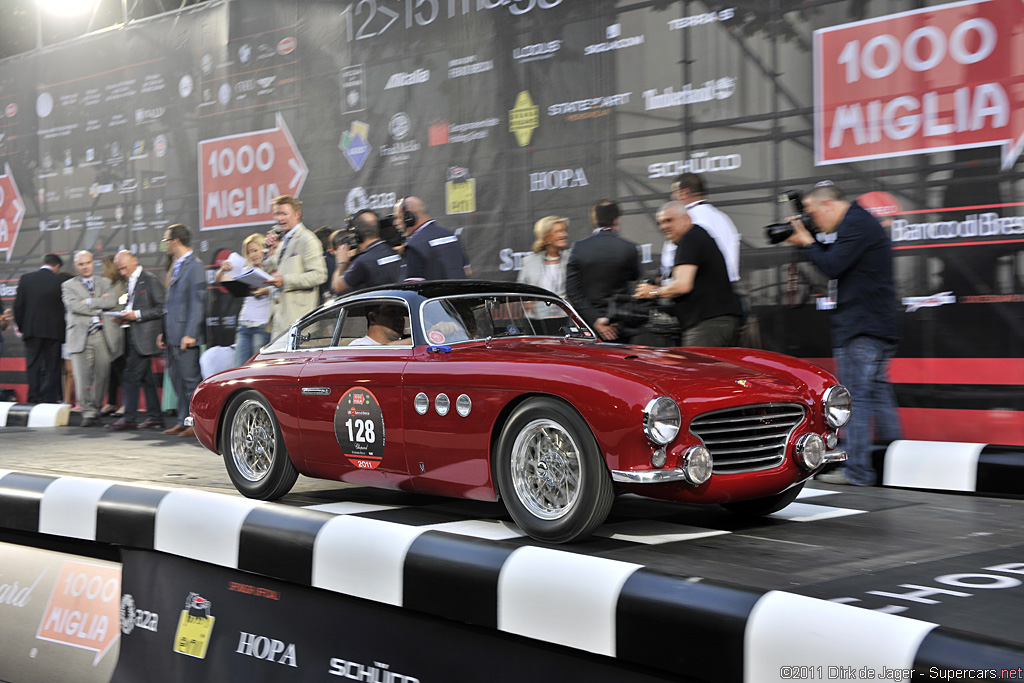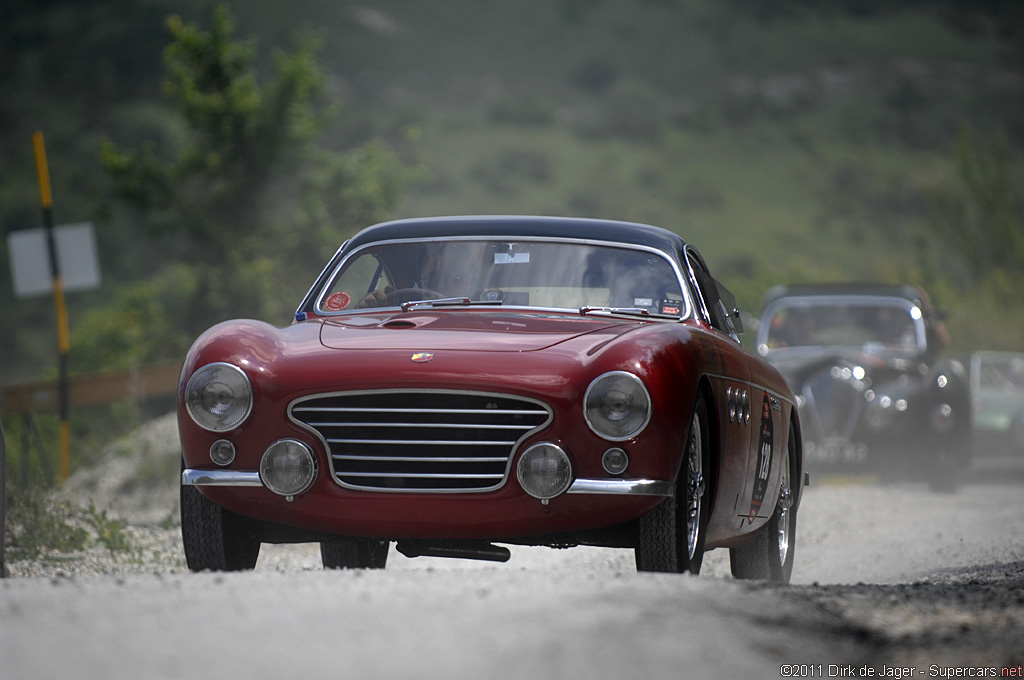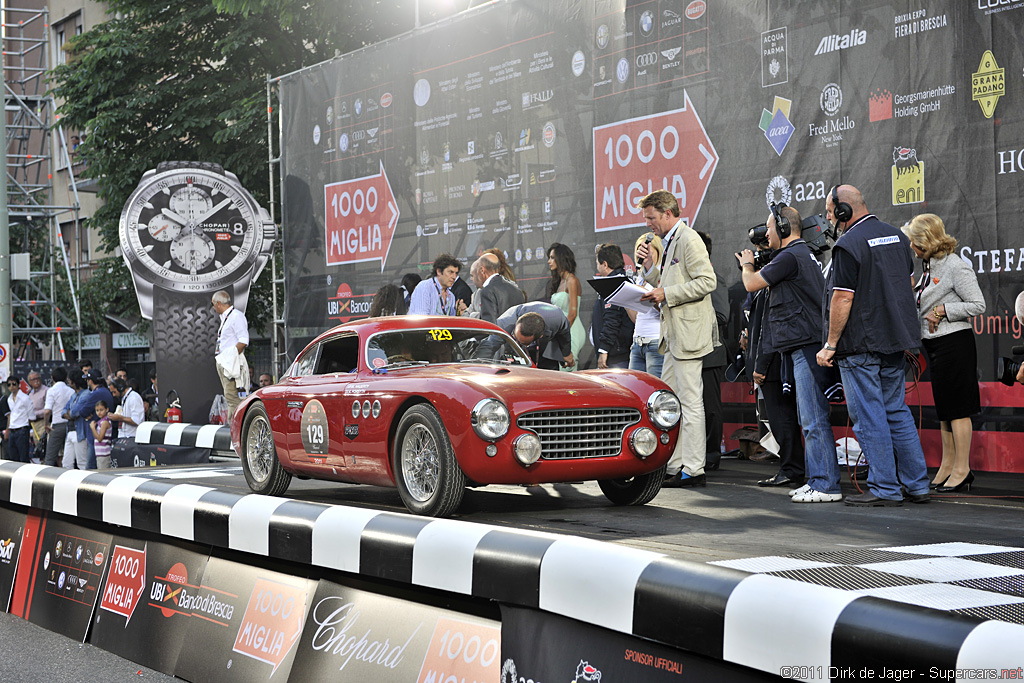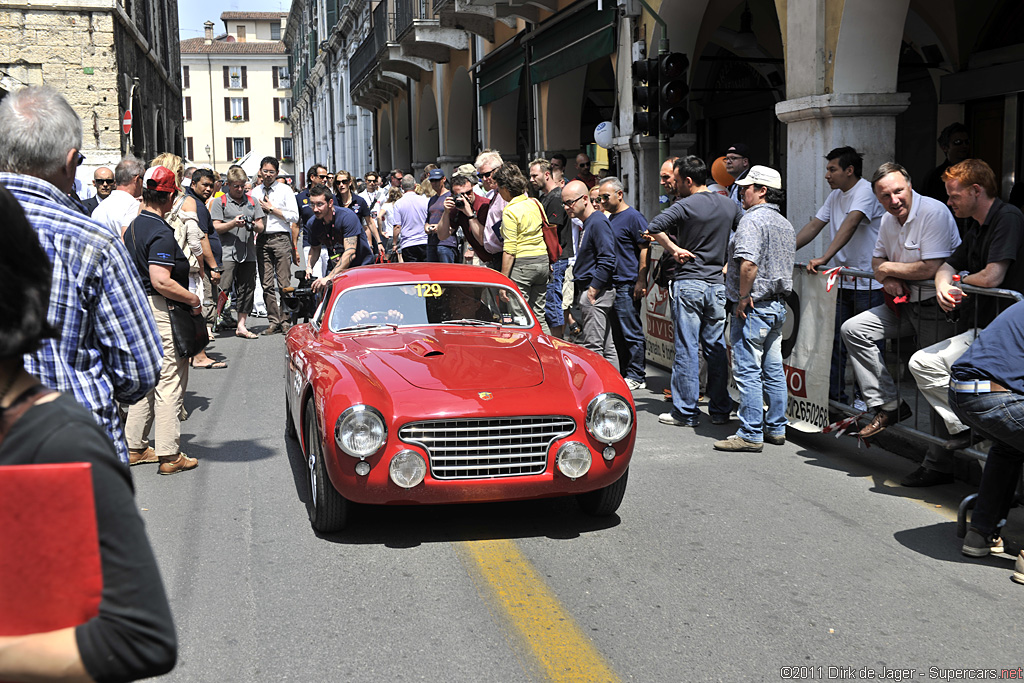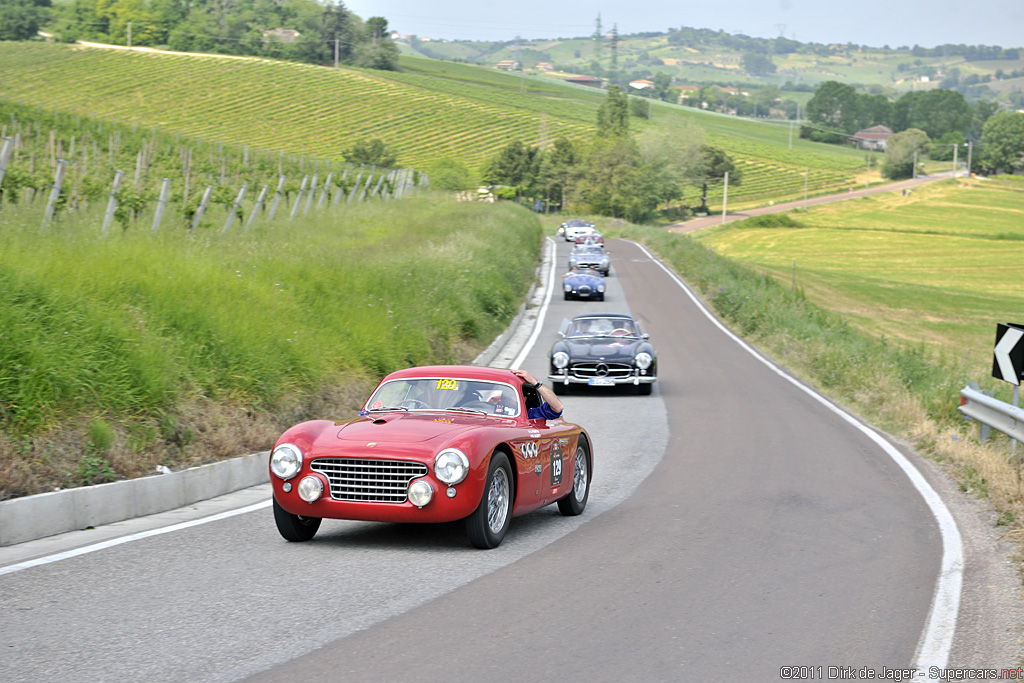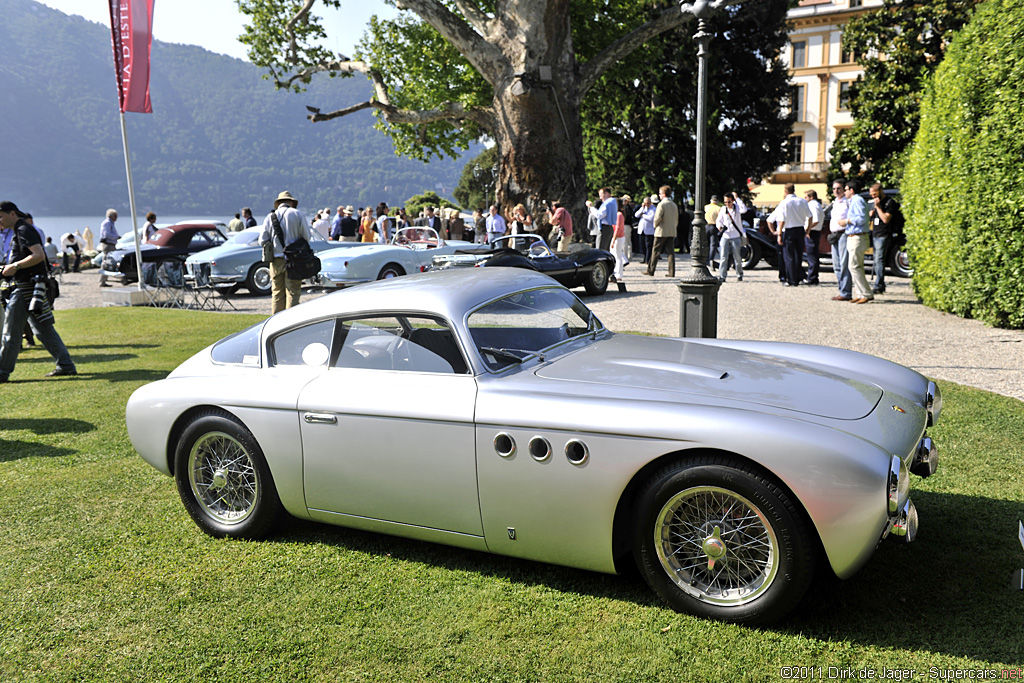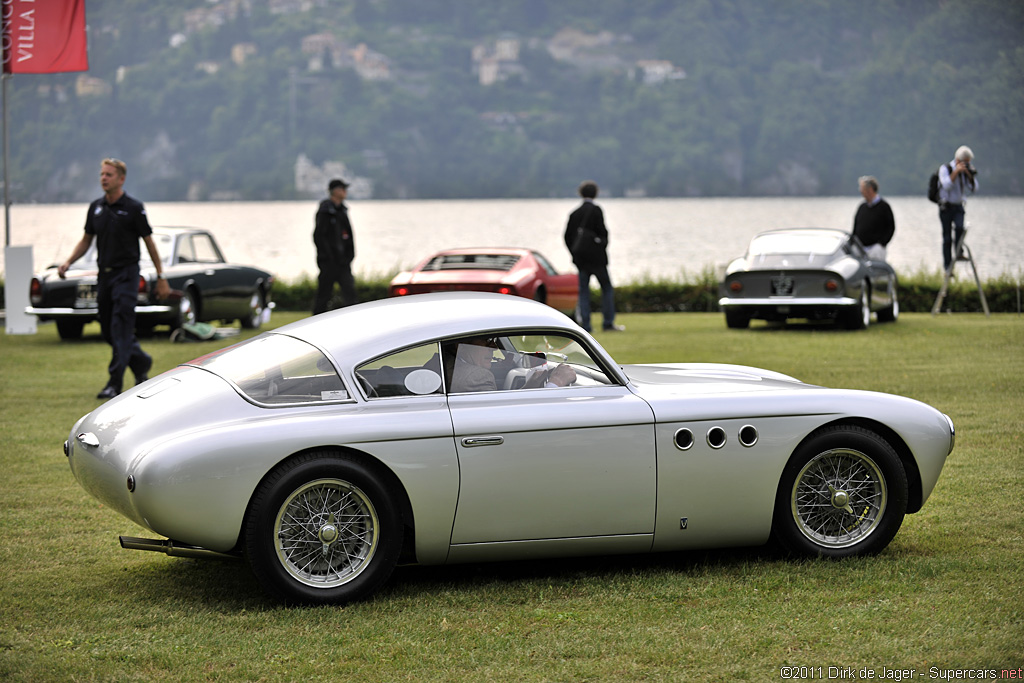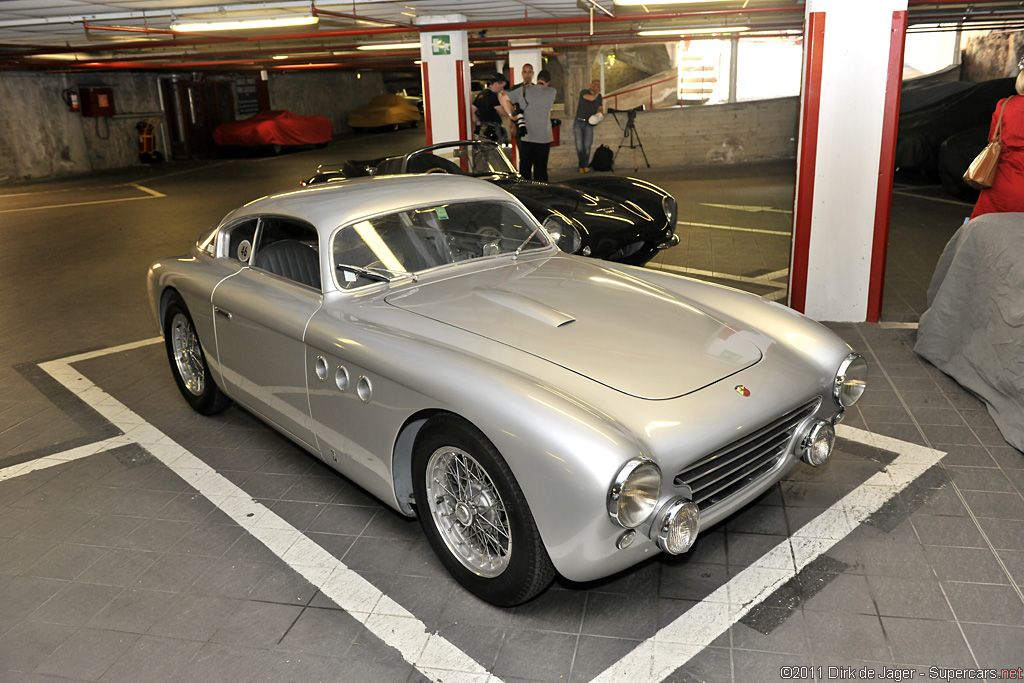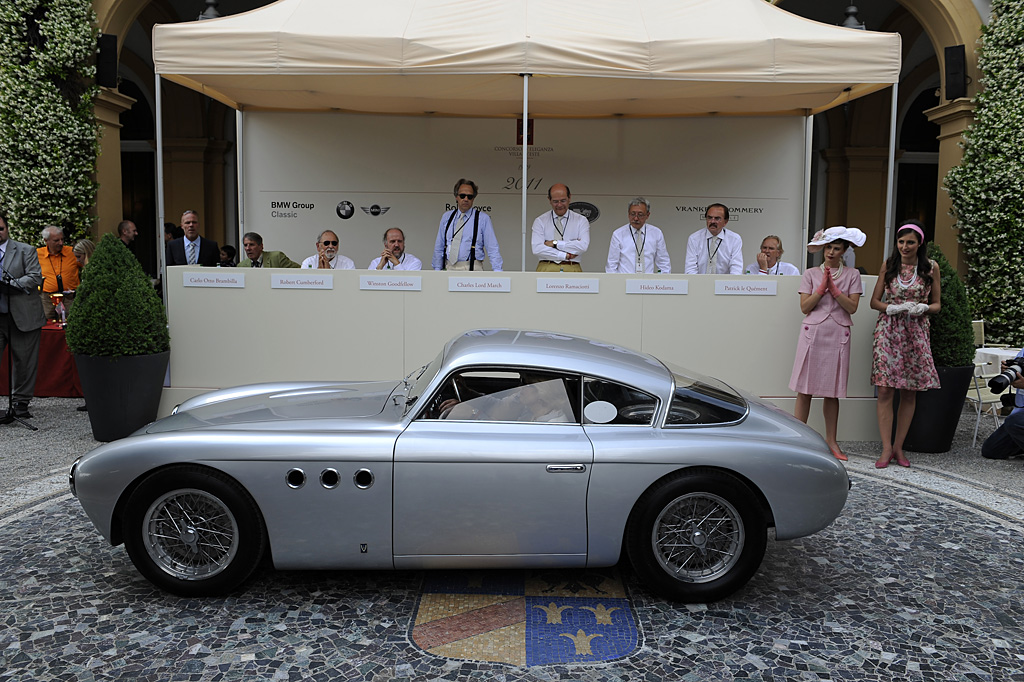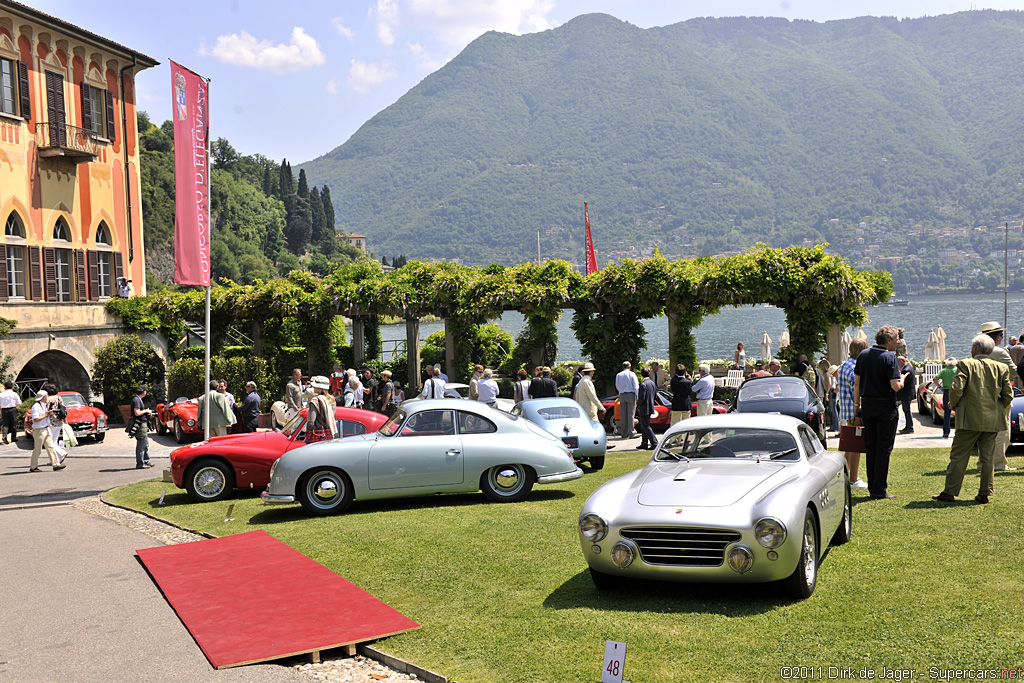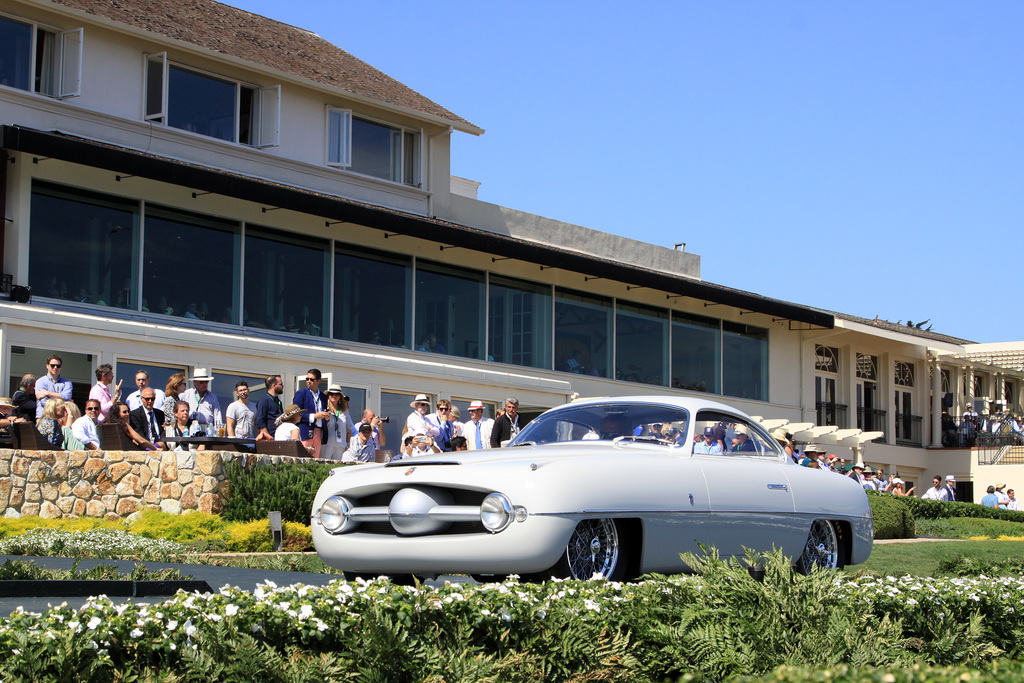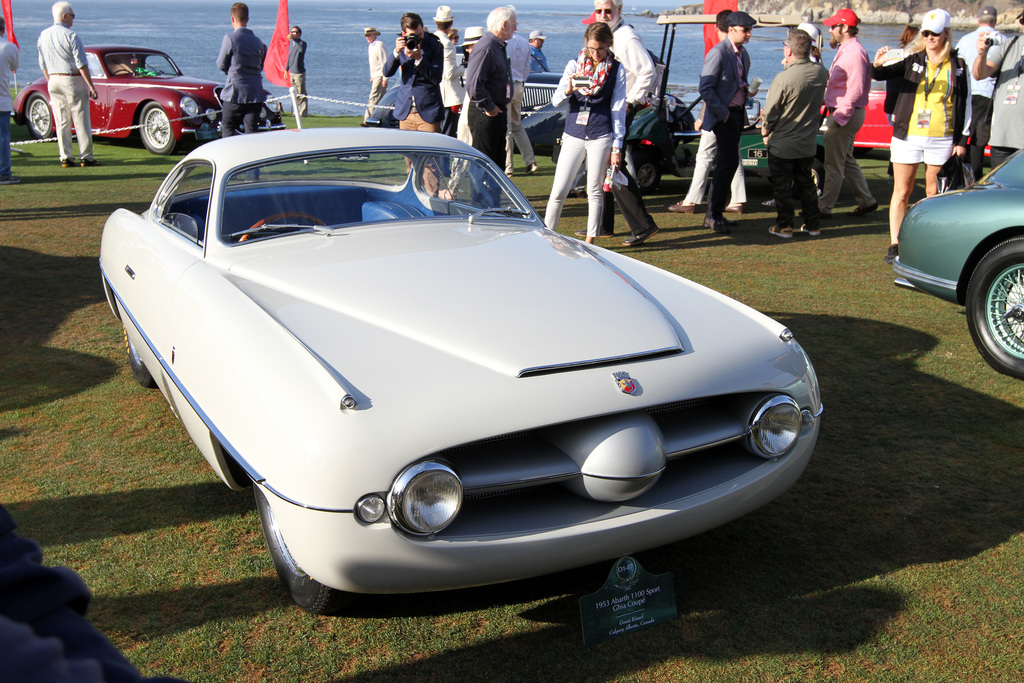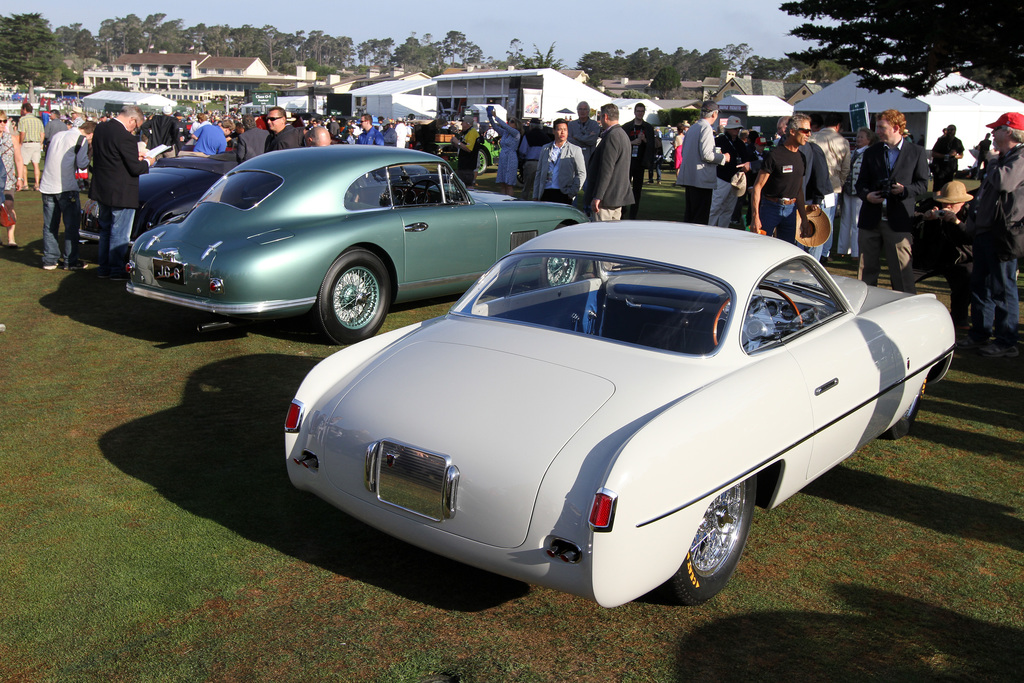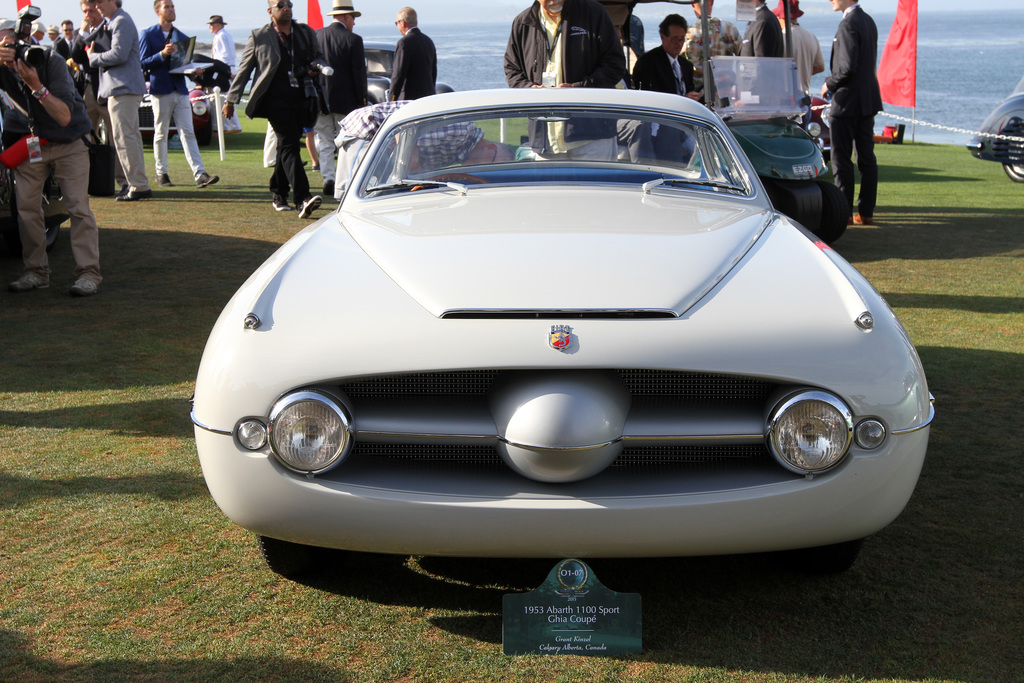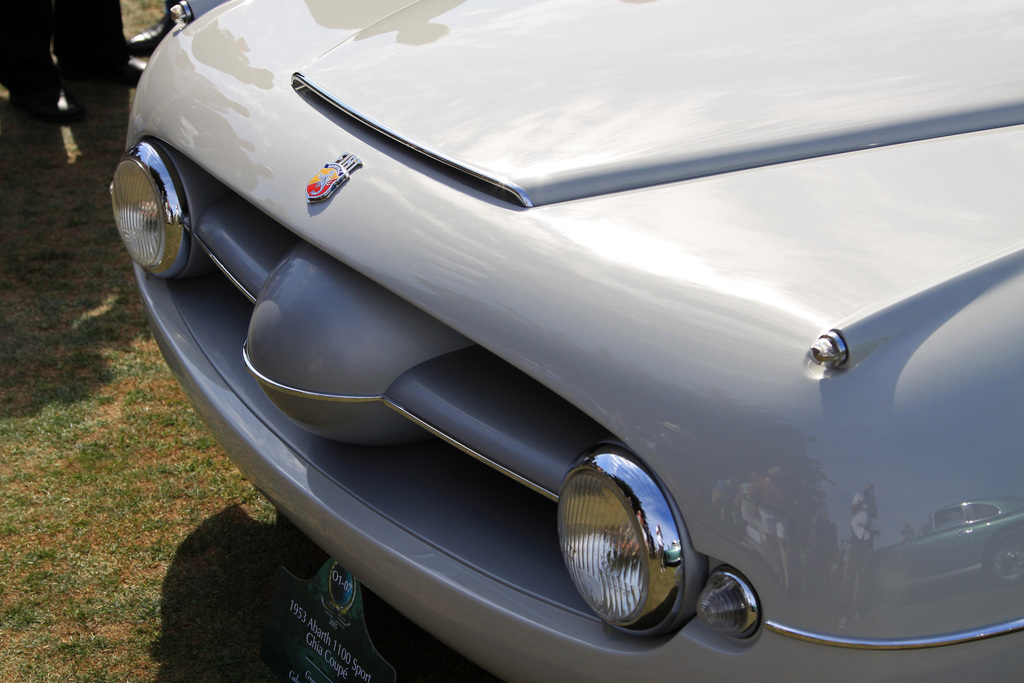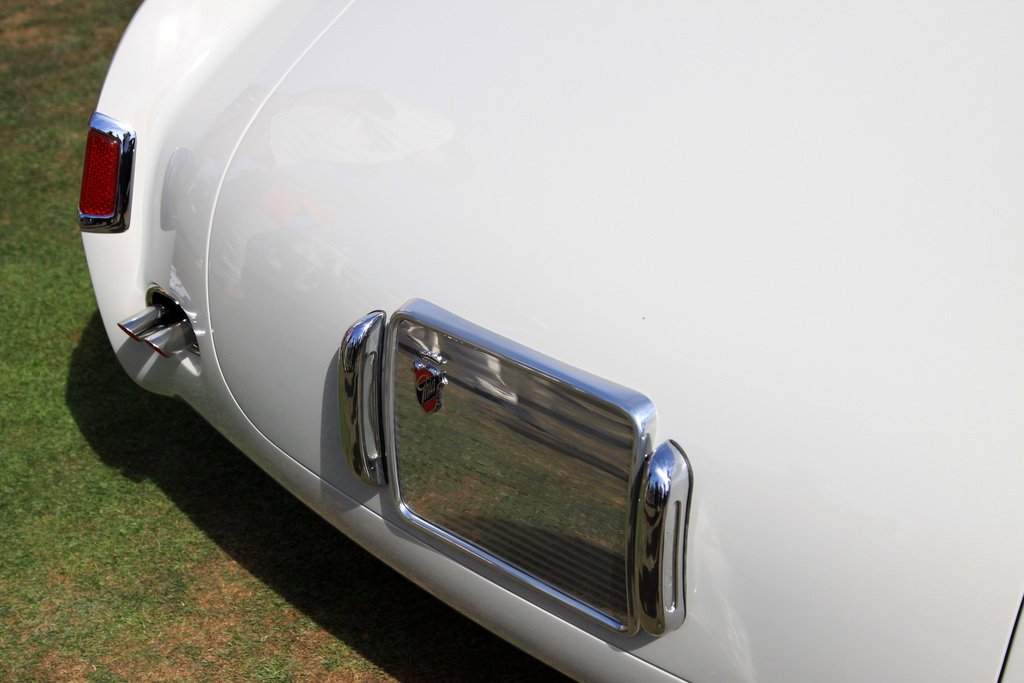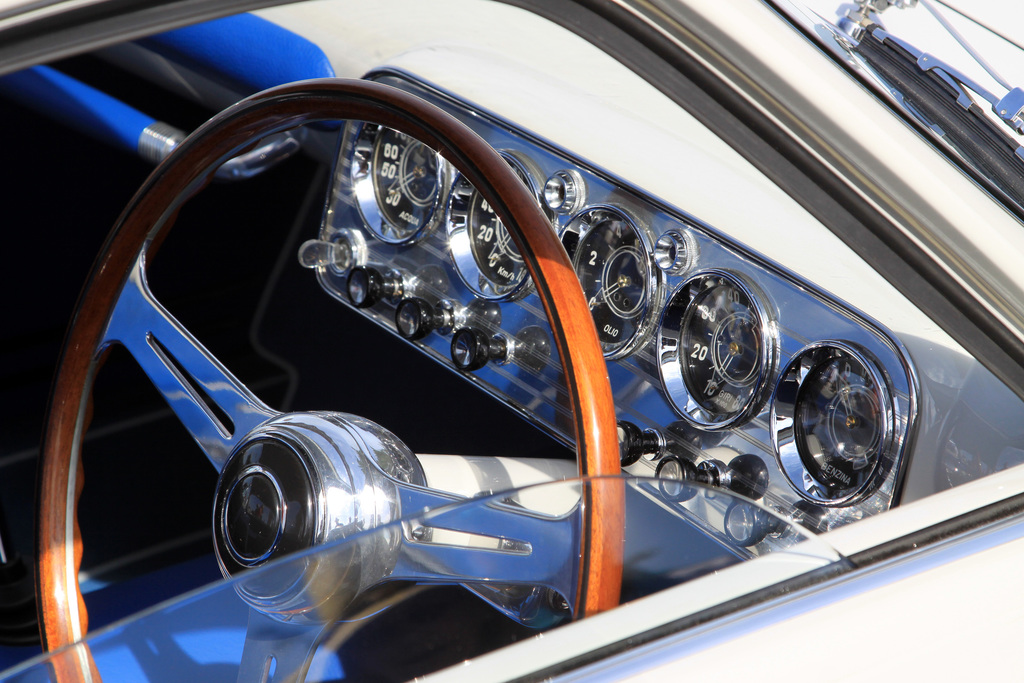Abarth 205 A
With its elegant lines and sleek roof line, this small Abarth has continued to cause a stir since its release at the 1951 Turin Auto Show. Not surprisingly so, since our feature car is the product of Karl Abarth’s engineering skills combined with graceful styling of Giovanni Michelotti.
After establishing himself as a talented engineer, three-time motor cycle champion Karl Abarth began constructing his own cars. At the time, Abarth had been laid off from bankrupt Cisitalia, but continued to race their cars while at the same time developing his own. The Abarth 205 as seen here was his first production car, and mimicked the 204 A race car.
For the 1949 season, Abarth’s race team relied on cycle-winged Cisitalia 204s to win the Formula 2 Championship for sports cars. Much more than a renamed Cisitalia, Abarth’s 204 had a unique chassis and a more developed engine. The final version of this successful car was the 204 A Coupe or Monza. With this coupe, Michelotti had successfully adopted his interpretation of the trend-setting Cisitalia 202.
For the 1951 Turin Show, Alfredo Vignale completed a more luxurious coupe body for the 204 with a fully appointed interior and detuned engine. Called the 205 A, the body was outwardly similar to 204 Monza.
One of these 205 coupes was constructed to race the 1950 Mille Miglia. Carlo Scagliarini and L. Garrone placed 31st overall in #630. T. Also at the race was a similarly bodied Abarth 204A Vignale Berlinetta.
With its jewel-like appearance the 205 coupe won several concours awards and helped to promote Abarth’s extensive catalogue of tuning accessories.
Our feature 205, chassis 205101, has a colorful history, including resurrection from a savage warehouse fire that rendered the car almost unrecognizable. Its current owner, Scott Emsley, discovered the deformed car and spent half a decade restoring it back to its original Turin show condition. Once restored, the Abarth 205 made its second debut at the 1990 Pebble Beach Concours, taking second in class only behind one of the famous Bertone B.A.T.s.
In Detail
| type | Racing Car |
| production years | 1951 – 1951 |
| released at | 1951 Turin Auto Show |
| built at | Turin, Italy |
| body stylist | Giovanni Michelotti |
| coachbuilder | Carrozzeria Vignale |
| production | 3 |
| engine | Cisitalia Inline-4 w/Dry Sump Lubrication |
| position | Front Longitudinal |
| aspiration | Twin DR4SP Weber Carburettors |
| valvetrain | Pushron OHV, 2 Valves per Cyl |
| fuel feed | 2 Weber 32DRSP Carburettors |
| displacement | 1188 cc / 72.50 in³ |
| bore | 71.5 mm / 2.81 in |
| stroke | 75 mm / 2.95 in |
| compression | 9.0:1 |
| power | 48.5 kw / 65 bhp @ 5500 rpm |
| specific output | 54.71 bhp per litre |
| bhp/weight | 79.46 bhp per tonne |
| body / frame | Aluminum Body over Boxed Steel Chassis |
| driven wheels | RWD |
| wheel type | Borrani Wires |
| front tires | 4.5×15 |
| rear tires | 5.00×15 |
| front brakes | Drums |
| rear brakes | Drums |
| front wheels | F 4.5 x 15 cm / 1.8 x 5.9 in |
| rear wheels | R 5.0 x 15 cm / 2.0 x 5.9 in |
| steering | Worm & Sector |
| f suspension | Porsche-Style Torsion Bars w/Trailing Links, Hydraulic Dampers |
| r suspension | Rigid Axle w/Semi-Elliptic Springs, Hydraulic Dampers |
| curb weight | 818 kg / 1803 lbs |
| wheelbase | 2210 mm / 87.0 in |
| front track | 1258 mm / 49.5 in |
| rear track | 1258 mm / 49.5 in |
| length | 3495 mm / 137.6 in |
| width | 1420 mm / 55.9 in |
| height | 1245 mm / 49.0 in |
| transmission | 4-Speed Manual |
| tran clutch | Single Plate Dry |
| final drive | 3.7:1 |
| top speed | ~170.0 kph / 105.6 mph |
| fuel capacity | 48 litres or 12.67 gal. |


